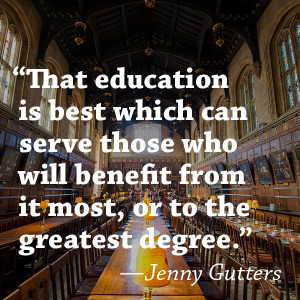A team of researchers has found that public education is a waste for up to 90% of the American population. Their solution: Provide direct cash payments rather than schooling for most Americans.
The findings are contained in a blockbuster report called “Vast Satanic Mills: Seeing Public Education for What It Is” that was released today by the Tohd Family Foundation’s Institute for Good Government. To reach their conclusion, the researchers added up the amount of money spent on the average child passing from elementary through high school in an average public school district. They then calculated what the same amount of money would come to if invested in an index fund until the child turned 65. The total of the “cash investment option” came to $1.77 million. By comparison, the median American household has just $12,000 saved for retirement by age 65. The researchers called this the “education investment option.”
“The gap is breathtaking,” says Jenny Gutters, a professor of economics at Upland Downs University and a lead author of the report. “People claim there are other benefits to education, but you talk to someone who’s 65 and ask them if they’d rather have $12,000 to eke through the next few decades, or a couple mil. It’s not hard to figure out what’s better for people here.”
 The researchers also found that, while poor and middle class Americans clearly fell into the “investment gap,” the opposite was true for the rich. “A person coming from the top 5% of households who takes the school route can expect to have more than $3.5 million saved by retirement, meaning education really pays off for the rich.”
The researchers also found that, while poor and middle class Americans clearly fell into the “investment gap,” the opposite was true for the rich. “A person coming from the top 5% of households who takes the school route can expect to have more than $3.5 million saved by retirement, meaning education really pays off for the rich.”
This observation informed the report’s most controversial recommendation. The authors say that public schools should be closed to the bottom 90% of the population based on wealth. The public school system could then better focus on maximizing the returns for the remaining wealthy students. Those excluded from education would receive a $250,000 payment on reaching age 67 (or whatever the retirement age is at that point), putting them “well ahead of their condition if forced to attend public school,” according to the report.
Gutters says, “The data is in, and universal education is a massive, failed experiment. This should have been obvious to anyone who has ever tried to have a conversation with a waiter or a tradesman. But now at long last we have a real solution.”
One critic of Gutters’ report is Dick Hallifa, a researcher in the Teaching Institute at Wye Sprite University. He argues that education is essential to building a productive workforce. “We need skilled workers now more than ever,” he says. “The Japanese, the Koreans, the Finns, they’re building the labor force of the future.”
But Gutters points to the work of Harvard professor Ricardo Hausmann, who has argued: “Most of the skills that a labor force possesses were acquired on the job. What a society knows how to do is known mainly in its firms, not in its schools.”
She suggests that poor children who start working earlier because they’re freed from the instructional iron pyrite of school will likely develop more skills than they would have otherwise. “It’s likely they will earn more in their lives and then receive the $250k payout at retirement. My God, what kind of idiot would not support that?”
Some critics have also suggested that education enriches a person’s experience of all facets of life, not just monetary production. They paint images of enlightened proletarians reading old copies of Thoreau while reclining in scenic meadows. “How can you put a price on the life of informed contemplation?” asks Hallifa.
“That’s what the teachers’ union people always say,” says Gutters. “We already know they don’t understand capitalism.” Gutters cites the work of another Harvard professor, Lant Pritchett, who has shown that there is no connection between increased education and economic growth.
Gutters won’t comment on rumors that one of the Republican presidential candidates is likely to adopt the report’s recommendations as a major part of his platform. But bloggers and unemployed political analysts are already speculating that such a move could upend the crowded field and shoot the courageous candidate to the top. At a minimum, other Republicans would have to counter with their own proposals that would also curtail spending on the poor and enhance economic growth.
But for Gutters, it’s all about the value of education. “Tell me, what would you pay to never to have to hear about our ‘failing schools’ again? We’ll only have good schools and successful students, and we’ll have a smaller and more efficient government to boot.”
More on Wealth and Education
The Sadness of Seeing Corruption Punished
Movement for Money Rights May Reshape Elections
University Purchases City for Economics Experiments


